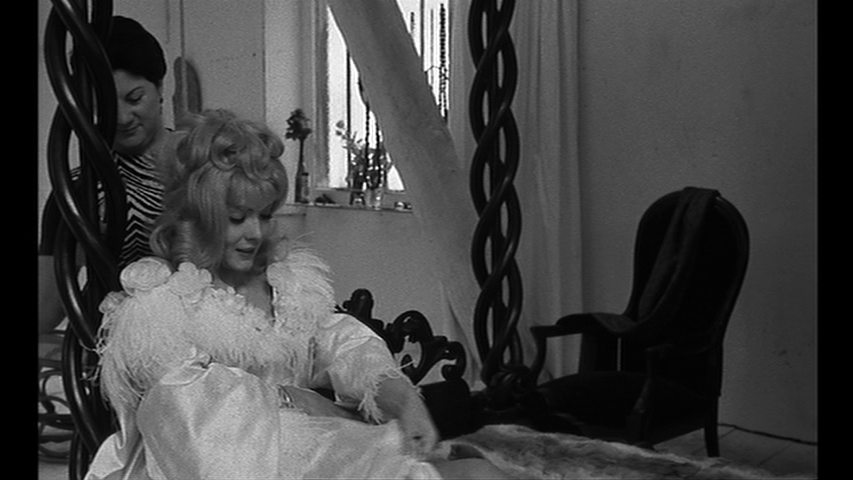Cléo
from 5 to 7
A film by Agnes Varda
1962/ France / Runtime: 90 mins
4th May 2014; 5.45pm
Perks Mini Theater
This movie shows us Cléo, a
beautiful French singer, who is afraid
of getting the result of of a test from her doctor. She
is counting out the minutes until she learns the results from tests. That time
she spends from 5 to 7 in the evening is told
almost in real time on celluloid by director Agnes Varda.
Despite the dire premonitions
that point to the titular heroine's grueling psychological marathon, Cléo from 5 to 7 moves
with grace from one emotional extreme to the next. Whenever Cleo finds herself drifting too far into
melancholic self-pity, she blithely puts on a devil-may-care grin—most
stunningly in the penultimate scene in the park when she sashays Marilyn
Monroe-style down stairs in the Parc Montsouris in order to face her impending
diagnosis.We follow her
for two hours while she cruises through the streets of Paris.
Director Varda quietly follows Cleo’s wanderings about Paris, but not in the
conventional discrete fashion of Hollywood montage sequences. Instead, as
Richard Roud has said “Little is omitted, there are no ellipses. The
streets and cafes of Paris, the taxis and the cinema, are seen as they really
are and as they appear through the eyes of a woman who is tracked by
death.”
This is a film whose debt to Varda’s life as a photographer is
always immanent: Paris has rarely been photographed with such clinical
precision. Paradoxically, this is a relentless first-person narrative.
Hers is not a naturalistic, hostile universe, it is a
universe which simply is,
and will remain, after Cleo leaves it, and it is the need to speak this deep
truth, to tell of the way that the universe shrugs its shoulders and says
“eh...” even to our greatest personal upheavals, which is the philosophical
foundation of Cleo from 5 to 7. It is a truth that we, like Cleo, can
never realize until we are confronted with a challenge to our own existence so
total that the universe’s quiet disinterest in us can be made this plain.
Agnès
Varda
In the four decades since Cléo from 5 to 7, Varda has
directed many films, and created at least three other esteemed masterpieces:
1977's One Sings, the Other Doesn't, which is the overtly feminist message
movie Cléo from 5 to 7 is often given credit for being; 1985's Vagabond, one of
the key art-house films of the '80s; and recently, 2000's The Gleaners and I, a
widely lauded essay film somewhat in the style of Chris Marker. In a way,
Marker was probably always the Nouvelle Vague/"Left Bank" filmmaker
that Varda perhaps most strongly resembled, in their shared love for the power
of photography, their completely unforced attitudes toward interpretation, and
a warm sense of cinematic playfulness. One can't help but compare Marker and
Varda to the curious and rambunctious kittens, a significantly entrenched motif
in Marker's canon, in Cléo's apartment. Those kittens would grow older and
direct the world-wise A Grin Without a Cat and The Gleaners and I, but Cléo
from 5 to 7 serves as a reminder that even the most cunning, ruthlessly
intellectual filmmakers can also create wondrous playgrounds, so long as
they're in touch with their own giddy paradoxes.
















